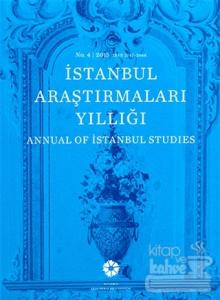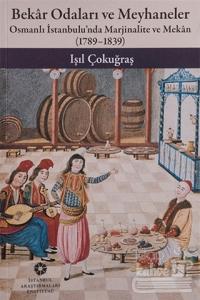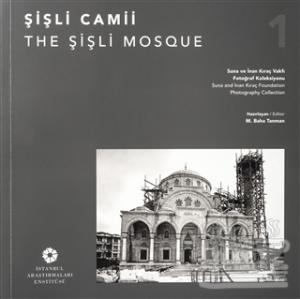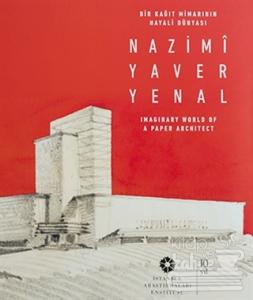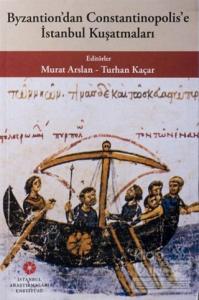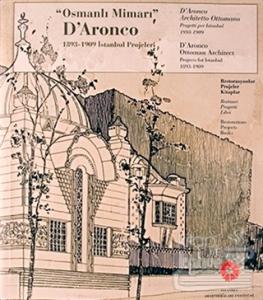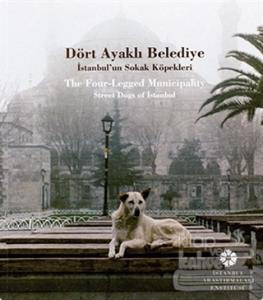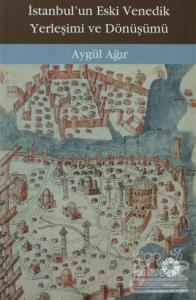
İstanbul Araştırmaları Enstitüsü, kentte yaşanan "hafıza kaybına", bunun tetiklediği kimlik bunalımına ve kültürel erozyonuna ilişkin duyarlılığı arttırmaya yönelik etkinlikler yapmak üzere kuruldu. Enstitünün süreli yayını olan İstanbul Araştırmaları Yıllığı, başından beri bu amaca hizmet ediyor ve olabildiğince kentin geçmişini bütüncül bir anlayışla ele almayı hedefleyen makaleler dizisi içermeye gayret gösteriyor.
Yıllığın 5. sayısında da, antikçağ, Bizans, Osmanlı ve Cumhuriyet dönemlerini kucaklayan geniş bir ufuk içinde kentin tarihi, arkeolojisi ve kültürel kimliğinin çeşitli boyutlarına ilişkin özgün araştırmalar yer alıyor: Antik döneme ait yazıtlar; Bizanslı kadın baniler ve manastırlar; Dördüncü Haçlı Seferi'ni takip eden, kısa süreli Latin egemenliğinin Kalenderhane Camii'nde bıraktığı freskler; çağlardan beri su sorununun yaşandığı kentin "hinterland"ında Bizans dönemine ait su yolları; kentin kimliğinde önemli bir kırılmanın gerçekleştiği Lâle Devri'nin simgesi haline gelmiş ve hemen bütün izleriyle ortadan kalkmış Sa'dâbâd Sarayı ile çevresinin mimarisi ve toplum hayatına getirdiği yenilikler; kentin mistik ve kültürel hayatında önemli bir yeri olan Galata Mevlevîhanesi ile yakın çevresinin 19. yüzyılda tanık olduğu değişim; 19. yüzyıldan Cumhuriyet'e rasathanelerin gelişimi; içerdiği birimlere ilişkin birçok bilinmeyenin bulunduğu Dolmabahçe Sarayı'nda, Hareket Köşkleri'nin inşa ve tefriş süreçlerine ilişkin belgelere dayalı değerlendirmeler ve Tanzimat'tan Cumhuriyet'e İstanbul'da sayfiye olgusunun değişimi.
İstanbul Research Institute was founded to organize events aimed at increasing sensitivity regarding the "loss of memory" in the city, the identity crisis this triggered, and the cultural erosion. Annual of İstanbul Studies, has served this purpose since the beginning, making an effort to include a series of articles that aim to discuss the city's past in a comprehensive manner.
The 5th issue of the Annual offers original research addressing various aspects of the city's history, archaeology, and cultural identity covering the Antiquity as well as Byzantine, Ottoman, and Republican periods: inscriptions from the Antiquity; Byzantine women founders and monasteries; frescoes at the Kalenderhane Mosque from the short-lived Latin rule following the Fourth Crusade; Byzantine conduits in the hinterland of the city where water has been a problem for ages; the architecture and social impact of the Sa'dâbâd Palace and its environs, which used to be the symbol of the Tulip Period and then disappeared with almost no trace; the Galata Mevlevi Lodge and its environs, which played an important role in the mystical and cultural life of the city, and the transformation it underwent during the second half of the 19th century; the development of observatories from the 19th century to the Republic; analyses of the documents pertaining to the construction and decoration process of the Hareket Köşkleri at the Dolmabahçe Palace, and the transformation of summer houses from The Reform Era to the Republic.
İstanbul Araştırmaları Enstitüsü, kentte yaşanan "hafıza kaybına", bunun tetiklediği kimlik bunalımına ve kültürel erozyonuna ilişkin duyarlılığı arttırmaya yönelik etkinlikler yapmak üzere kuruldu. Enstitünün süreli yayını olan İstanbul Araştırmaları Yıllığı, başından beri bu amaca hizmet ediyor ve olabildiğince kentin geçmişini bütüncül bir anlayışla ele almayı hedefleyen makaleler dizisi içermeye gayret gösteriyor.
Yıllığın 5. sayısında da, antikçağ, Bizans, Osmanlı ve Cumhuriyet dönemlerini kucaklayan geniş bir ufuk içinde kentin tarihi, arkeolojisi ve kültürel kimliğinin çeşitli boyutlarına ilişkin özgün araştırmalar yer alıyor: Antik döneme ait yazıtlar; Bizanslı kadın baniler ve manastırlar; Dördüncü Haçlı Seferi'ni takip eden, kısa süreli Latin egemenliğinin Kalenderhane Camii'nde bıraktığı freskler; çağlardan beri su sorununun yaşandığı kentin "hinterland"ında Bizans dönemine ait su yolları; kentin kimliğinde önemli bir kırılmanın gerçekleştiği Lâle Devri'nin simgesi haline gelmiş ve hemen bütün izleriyle ortadan kalkmış Sa'dâbâd Sarayı ile çevresinin mimarisi ve toplum hayatına getirdiği yenilikler; kentin mistik ve kültürel hayatında önemli bir yeri olan Galata Mevlevîhanesi ile yakın çevresinin 19. yüzyılda tanık olduğu değişim; 19. yüzyıldan Cumhuriyet'e rasathanelerin gelişimi; içerdiği birimlere ilişkin birçok bilinmeyenin bulunduğu Dolmabahçe Sarayı'nda, Hareket Köşkleri'nin inşa ve tefriş süreçlerine ilişkin belgelere dayalı değerlendirmeler ve Tanzimat'tan Cumhuriyet'e İstanbul'da sayfiye olgusunun değişimi.
İstanbul Research Institute was founded to organize events aimed at increasing sensitivity regarding the "loss of memory" in the city, the identity crisis this triggered, and the cultural erosion. Annual of İstanbul Studies, has served this purpose since the beginning, making an effort to include a series of articles that aim to discuss the city's past in a comprehensive manner.
The 5th issue of the Annual offers original research addressing various aspects of the city's history, archaeology, and cultural identity covering the Antiquity as well as Byzantine, Ottoman, and Republican periods: inscriptions from the Antiquity; Byzantine women founders and monasteries; frescoes at the Kalenderhane Mosque from the short-lived Latin rule following the Fourth Crusade; Byzantine conduits in the hinterland of the city where water has been a problem for ages; the architecture and social impact of the Sa'dâbâd Palace and its environs, which used to be the symbol of the Tulip Period and then disappeared with almost no trace; the Galata Mevlevi Lodge and its environs, which played an important role in the mystical and cultural life of the city, and the transformation it underwent during the second half of the 19th century; the development of observatories from the 19th century to the Republic; analyses of the documents pertaining to the construction and decoration process of the Hareket Köşkleri at the Dolmabahçe Palace, and the transformation of summer houses from The Reform Era to the Republic.





